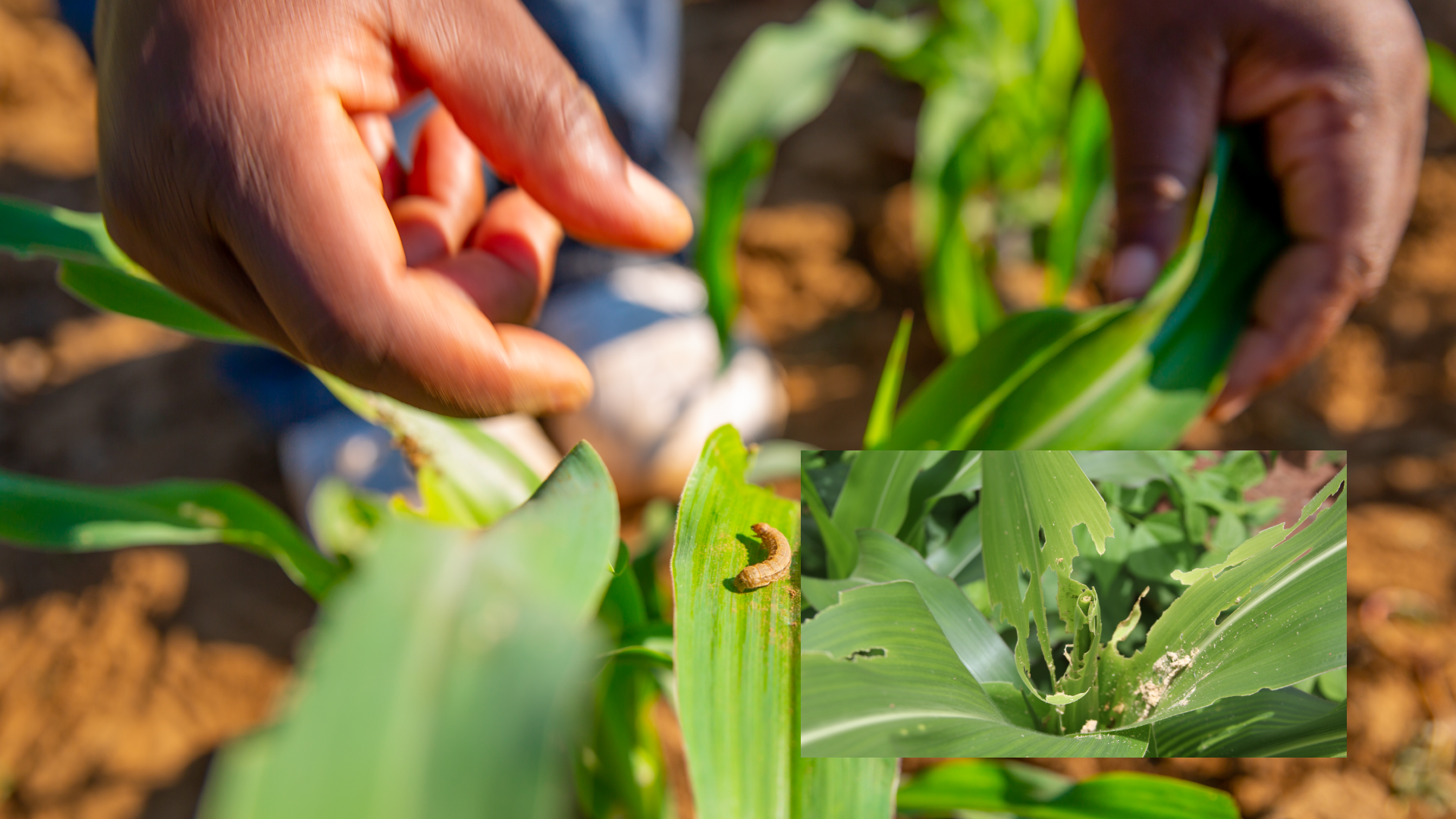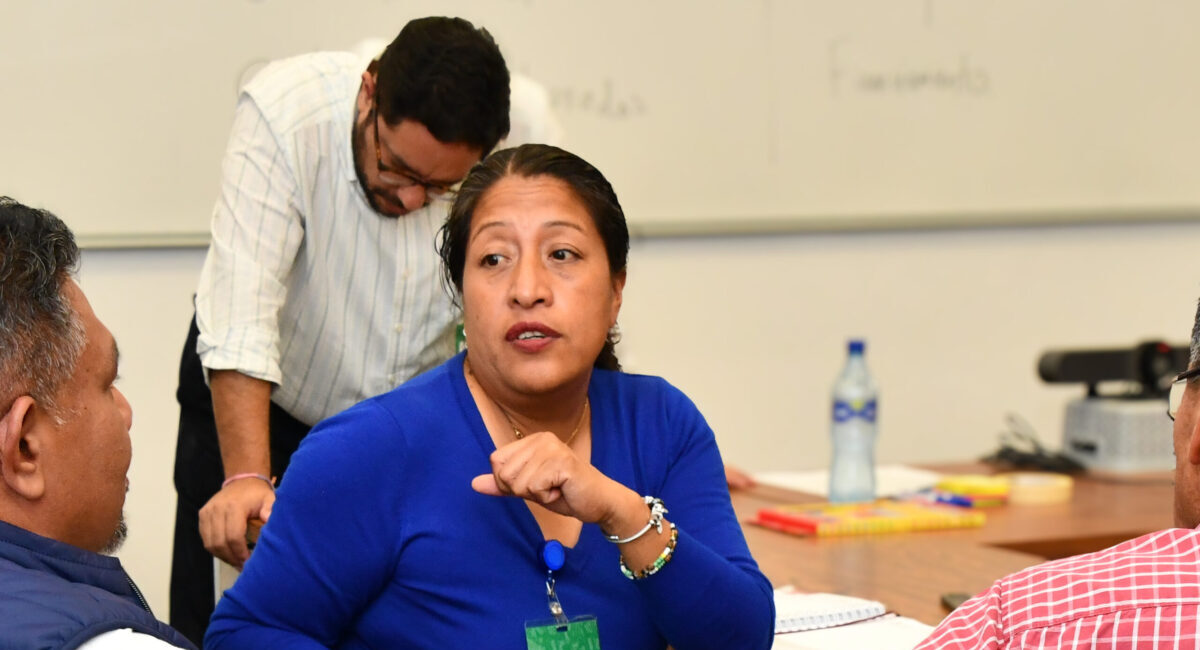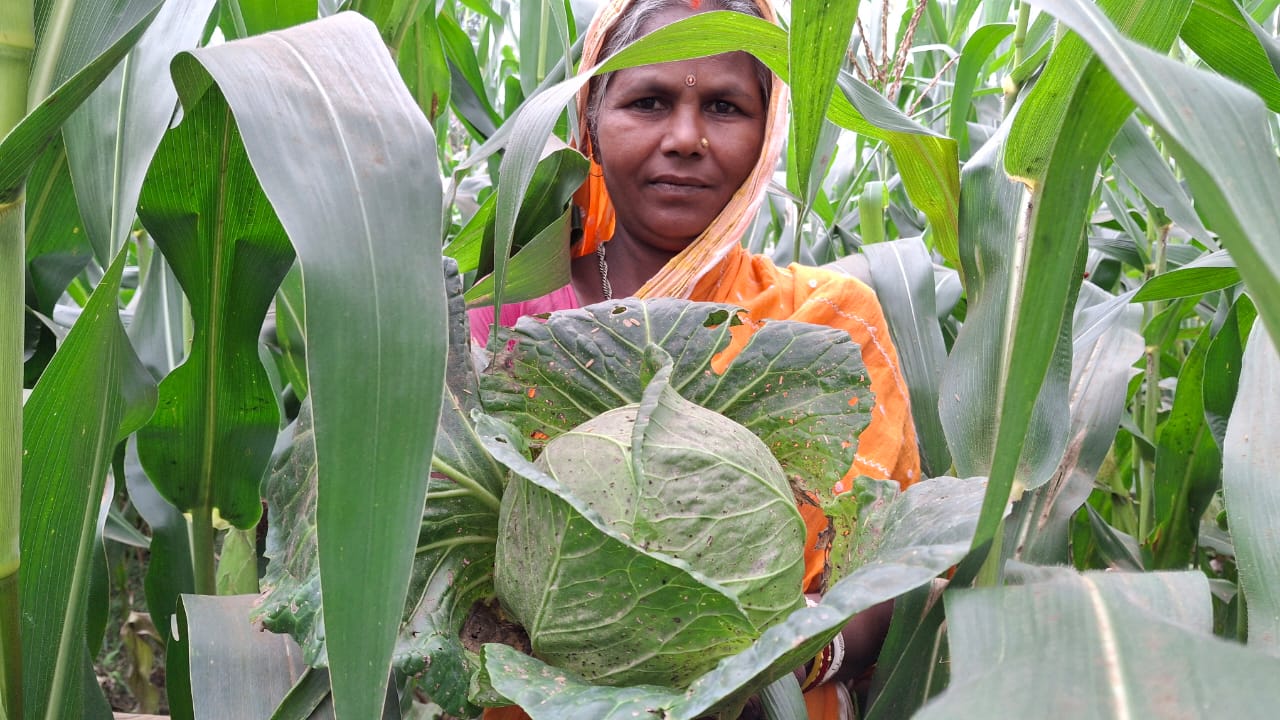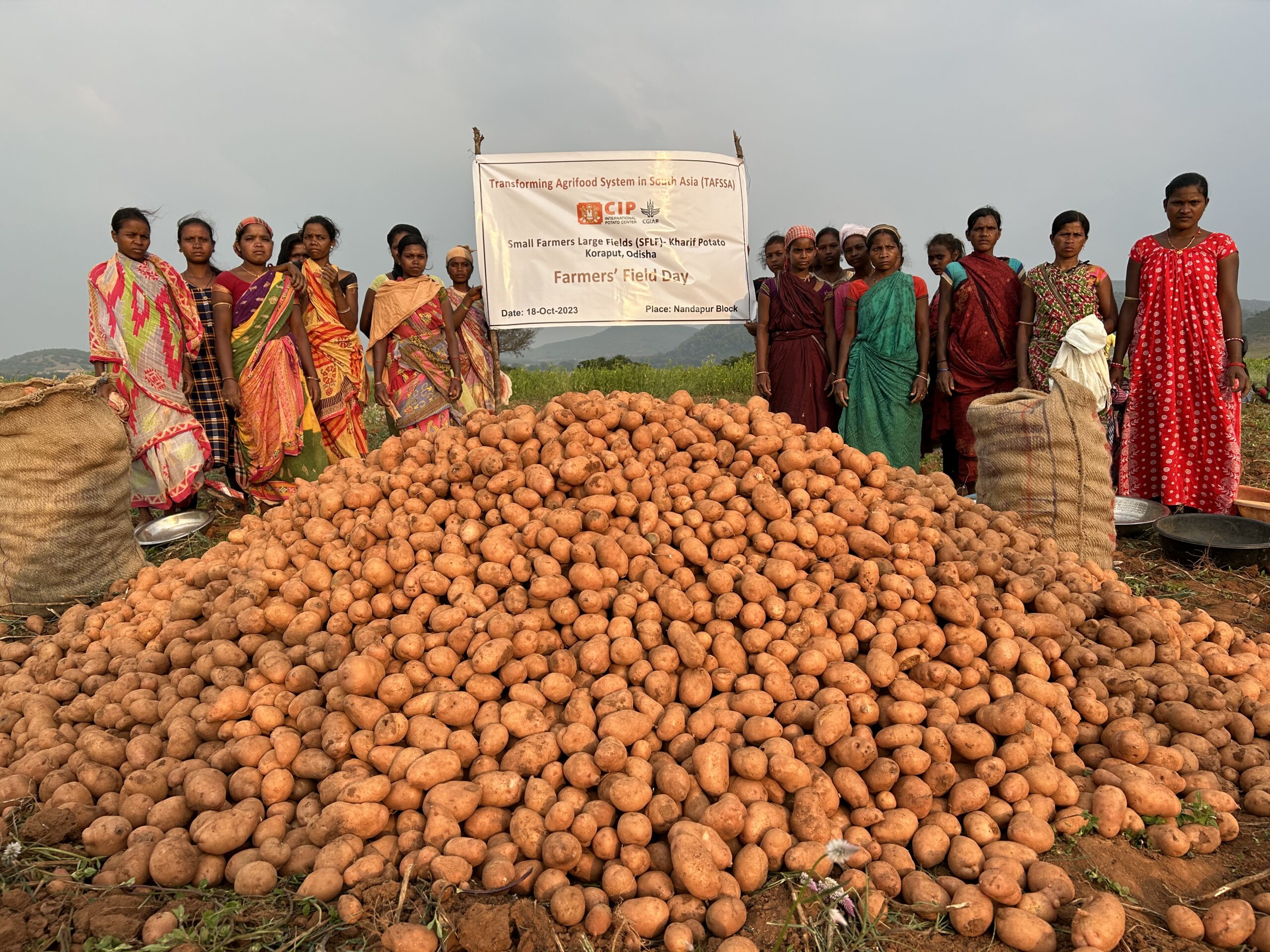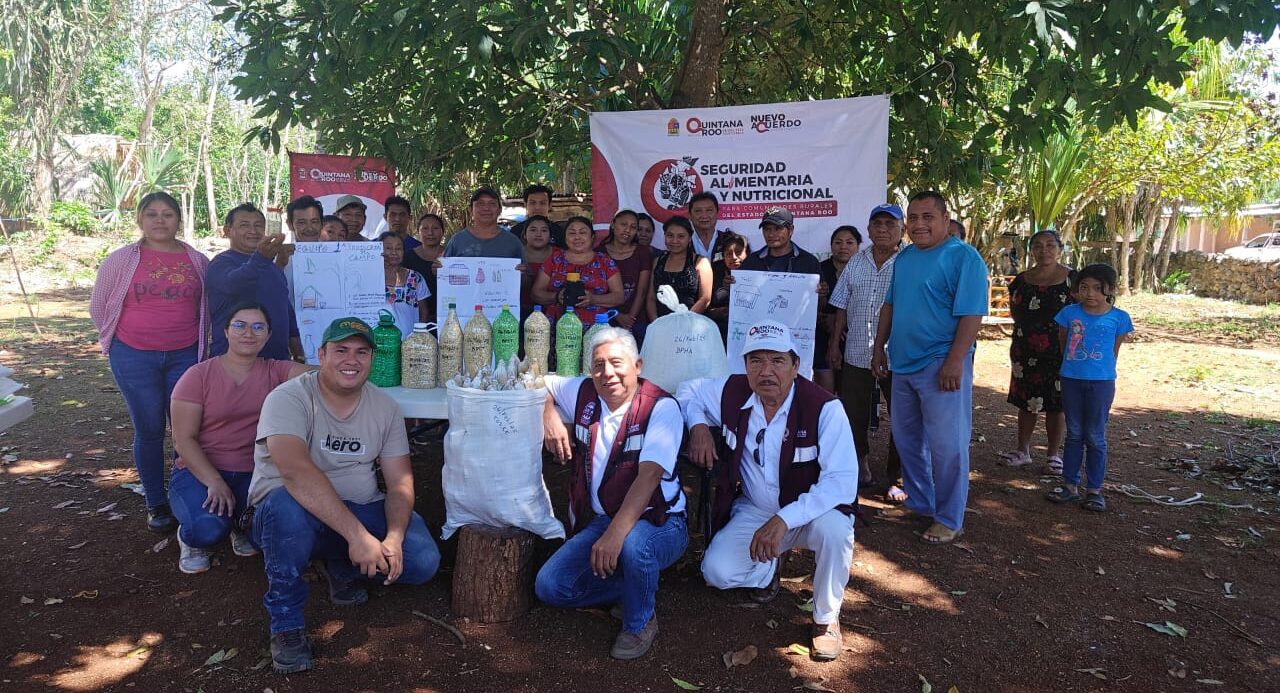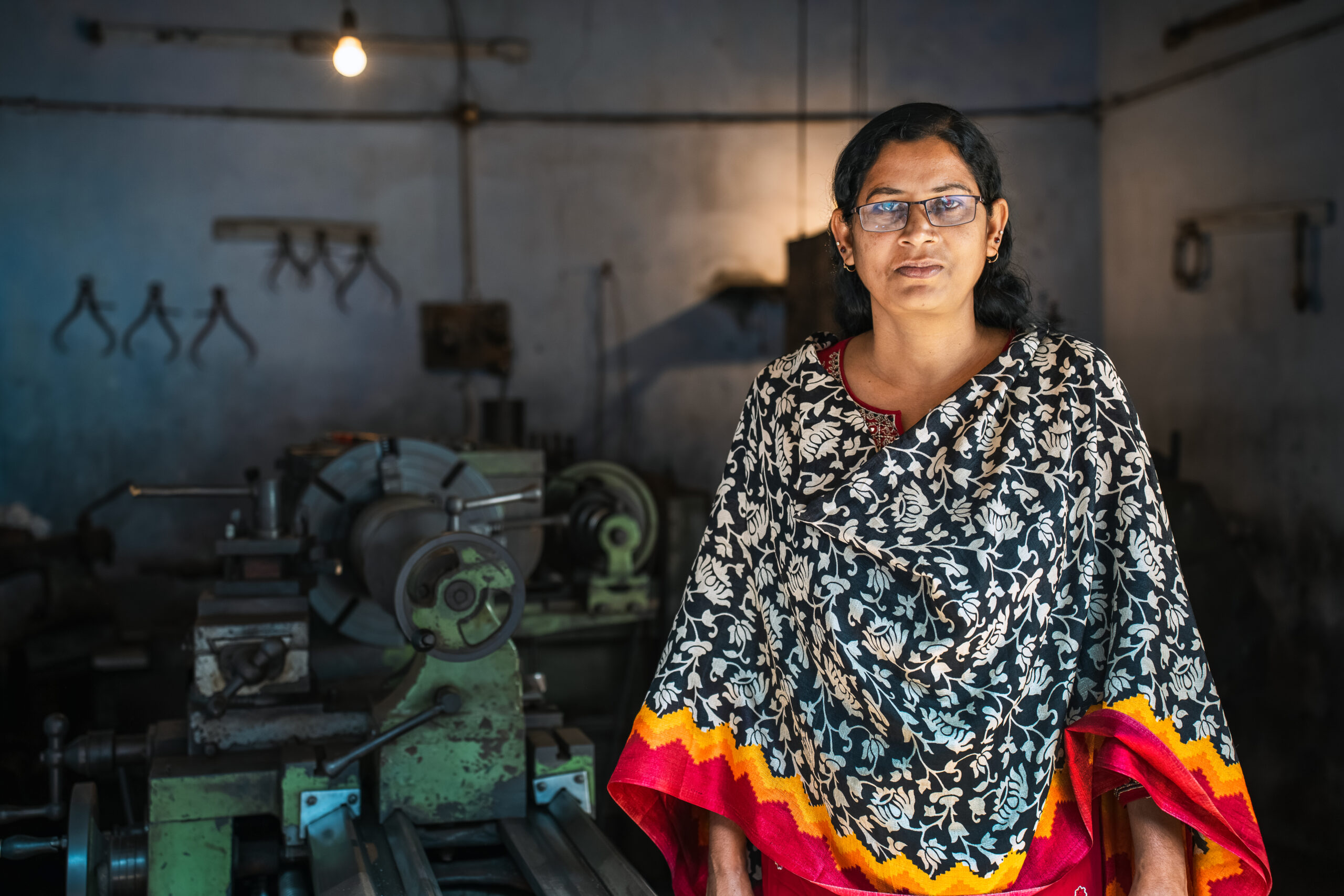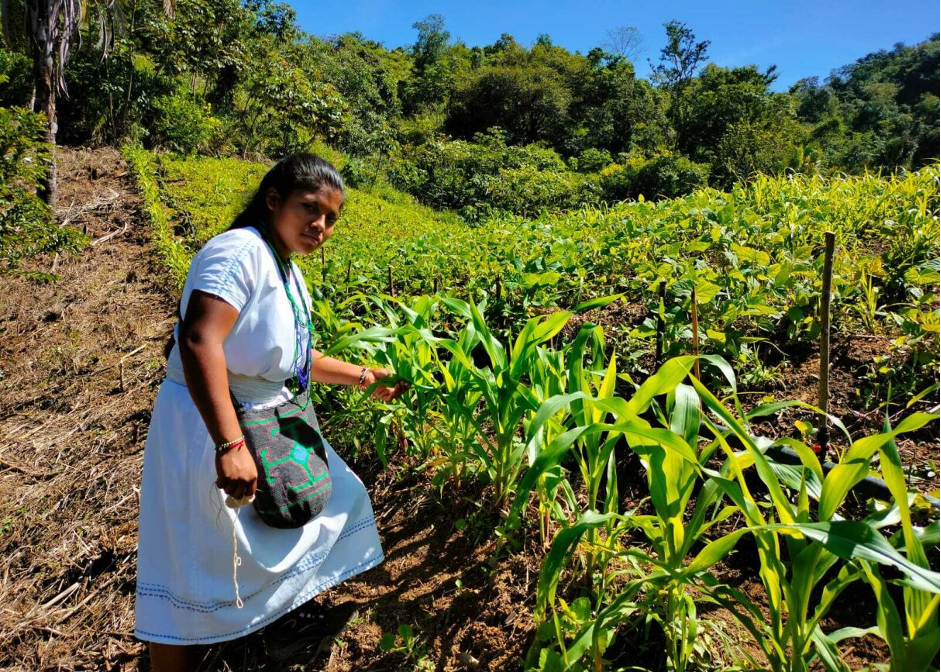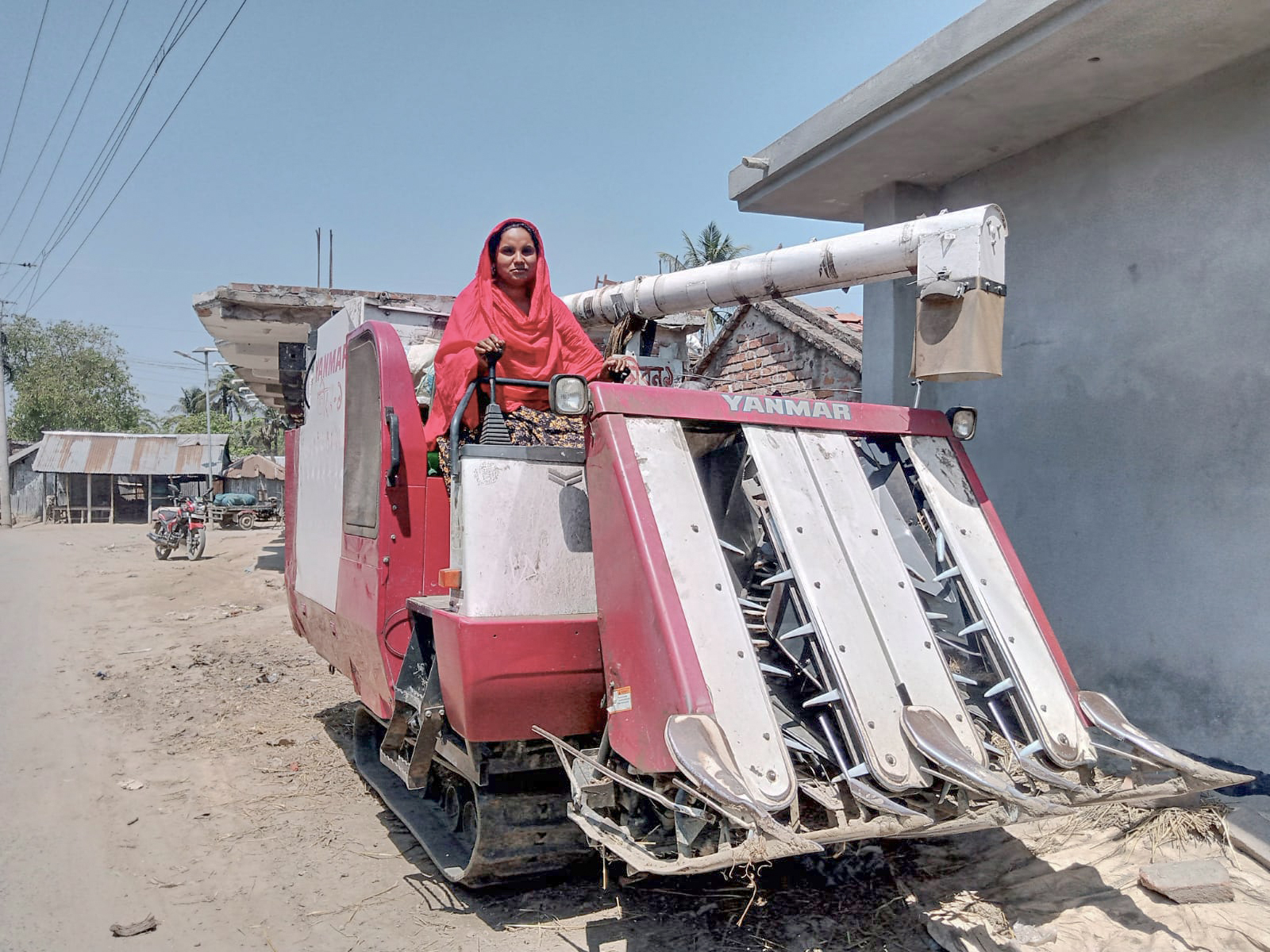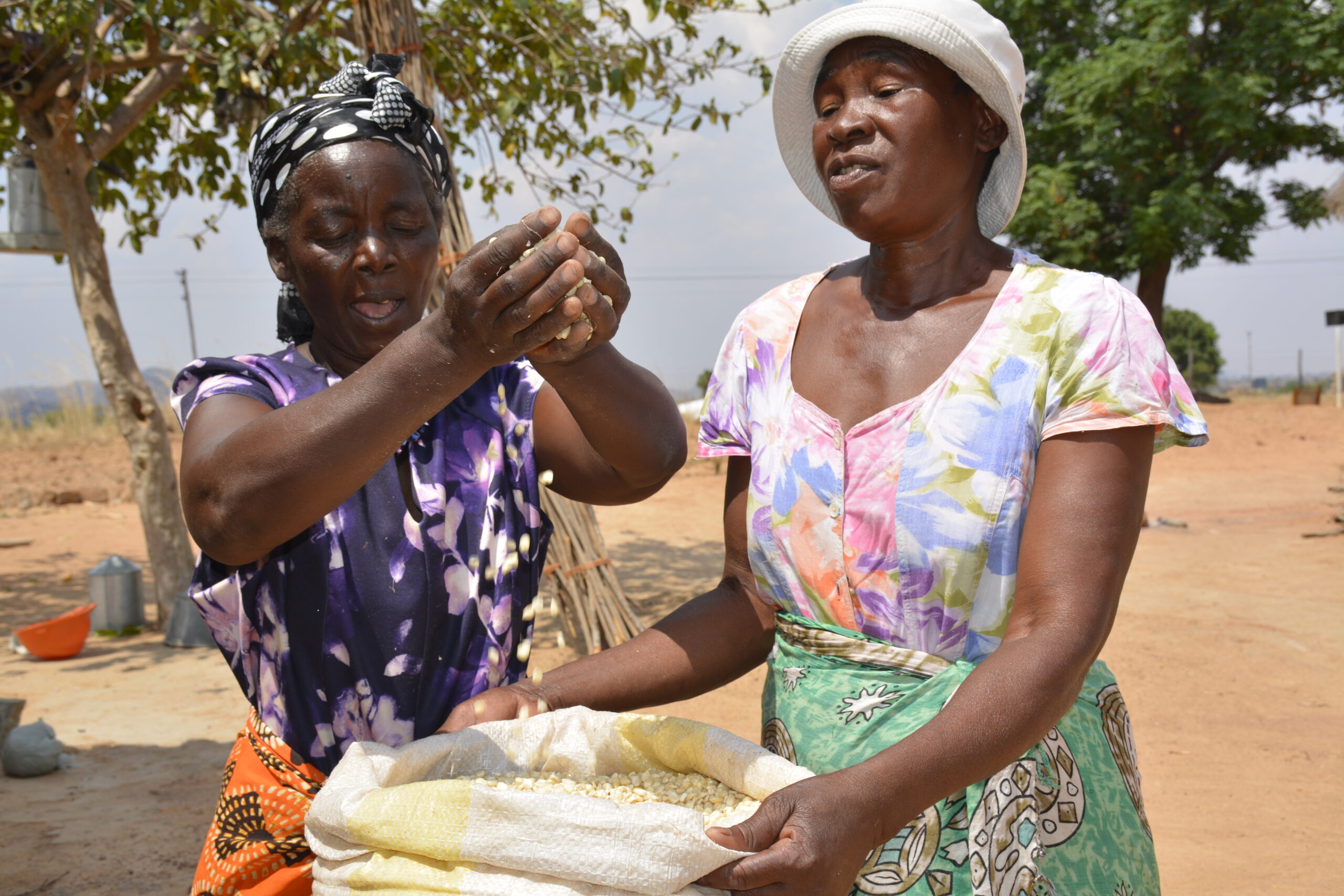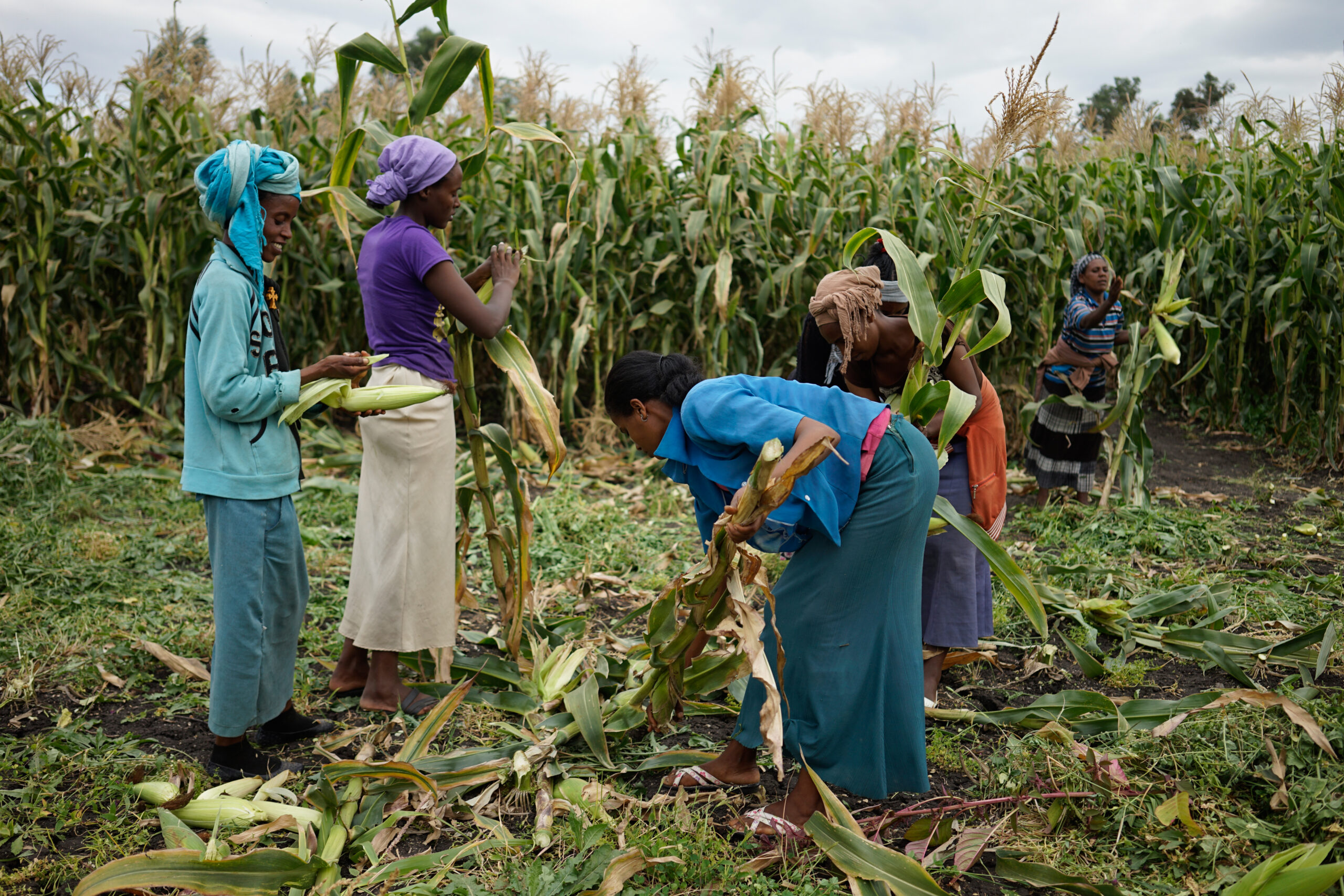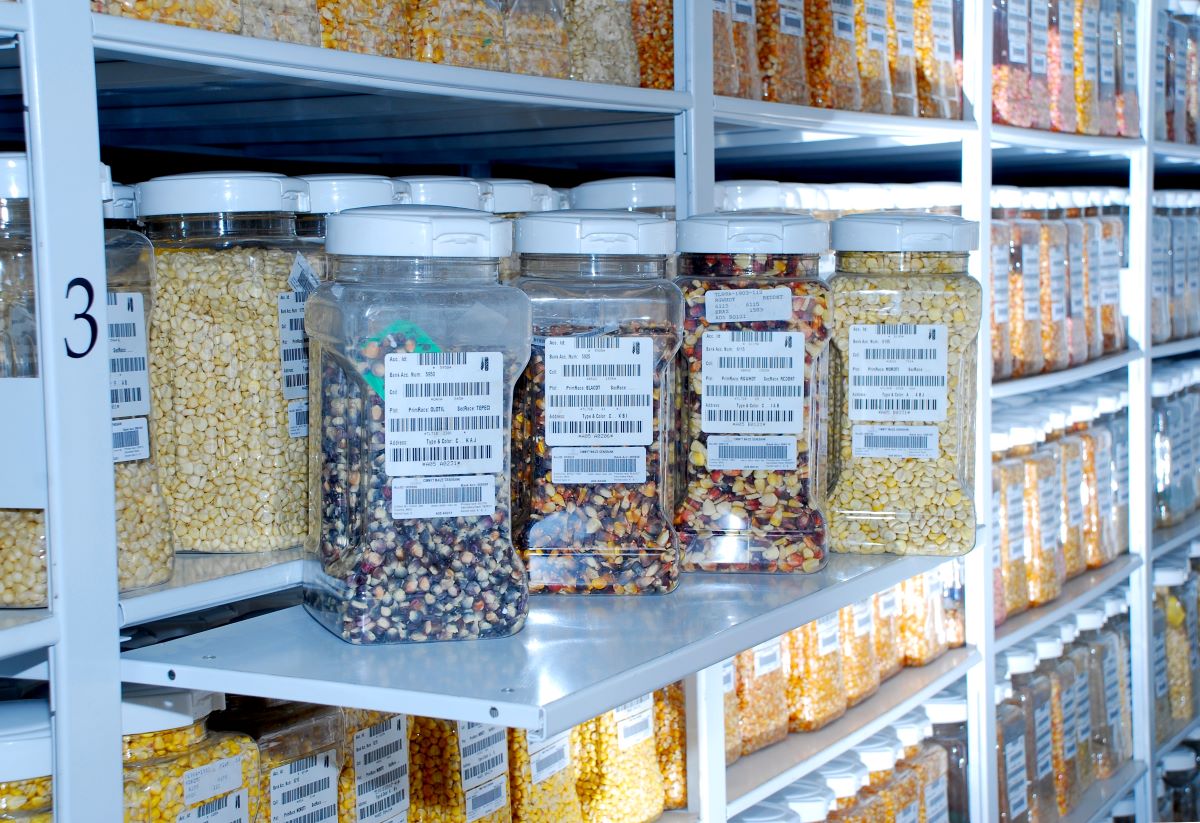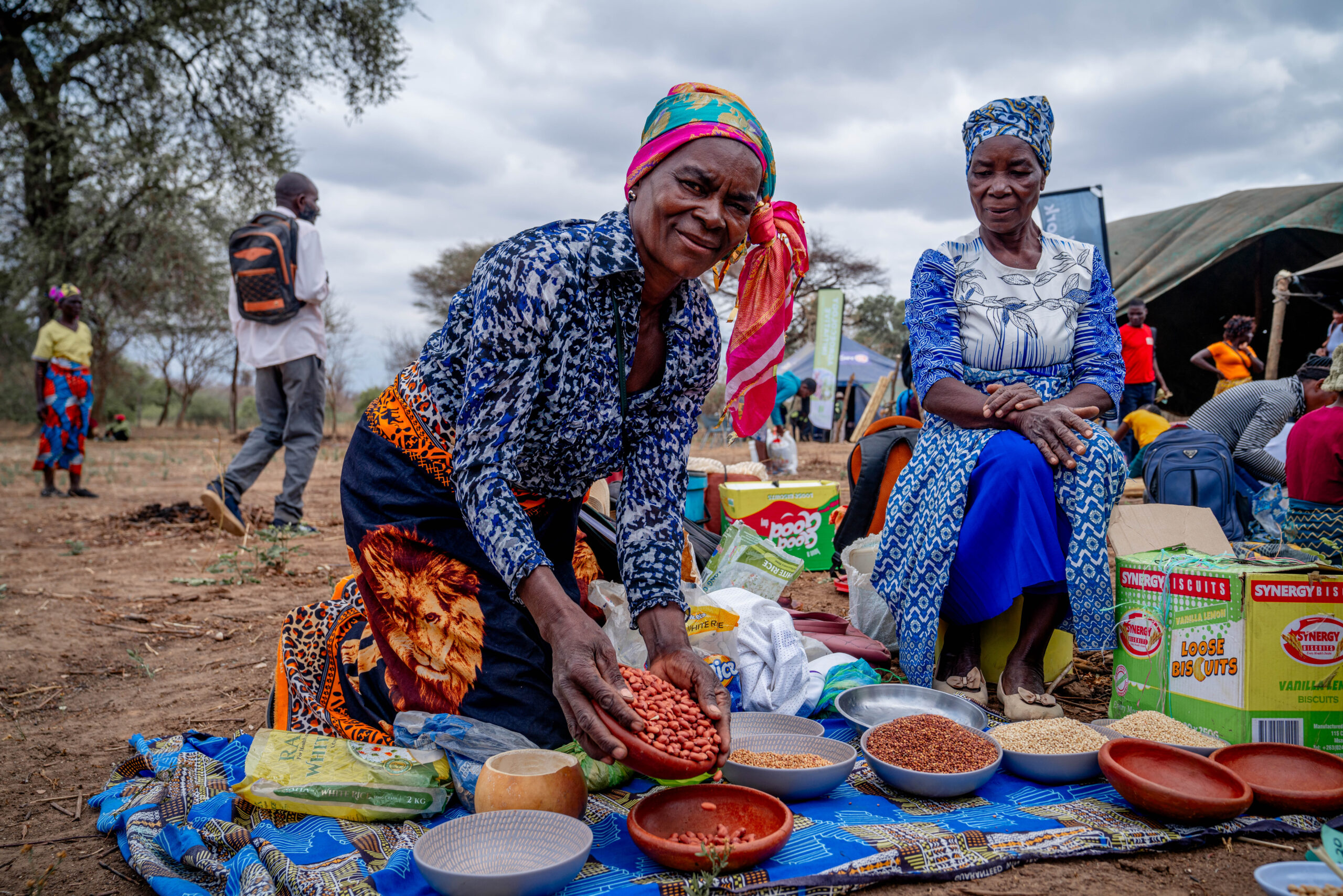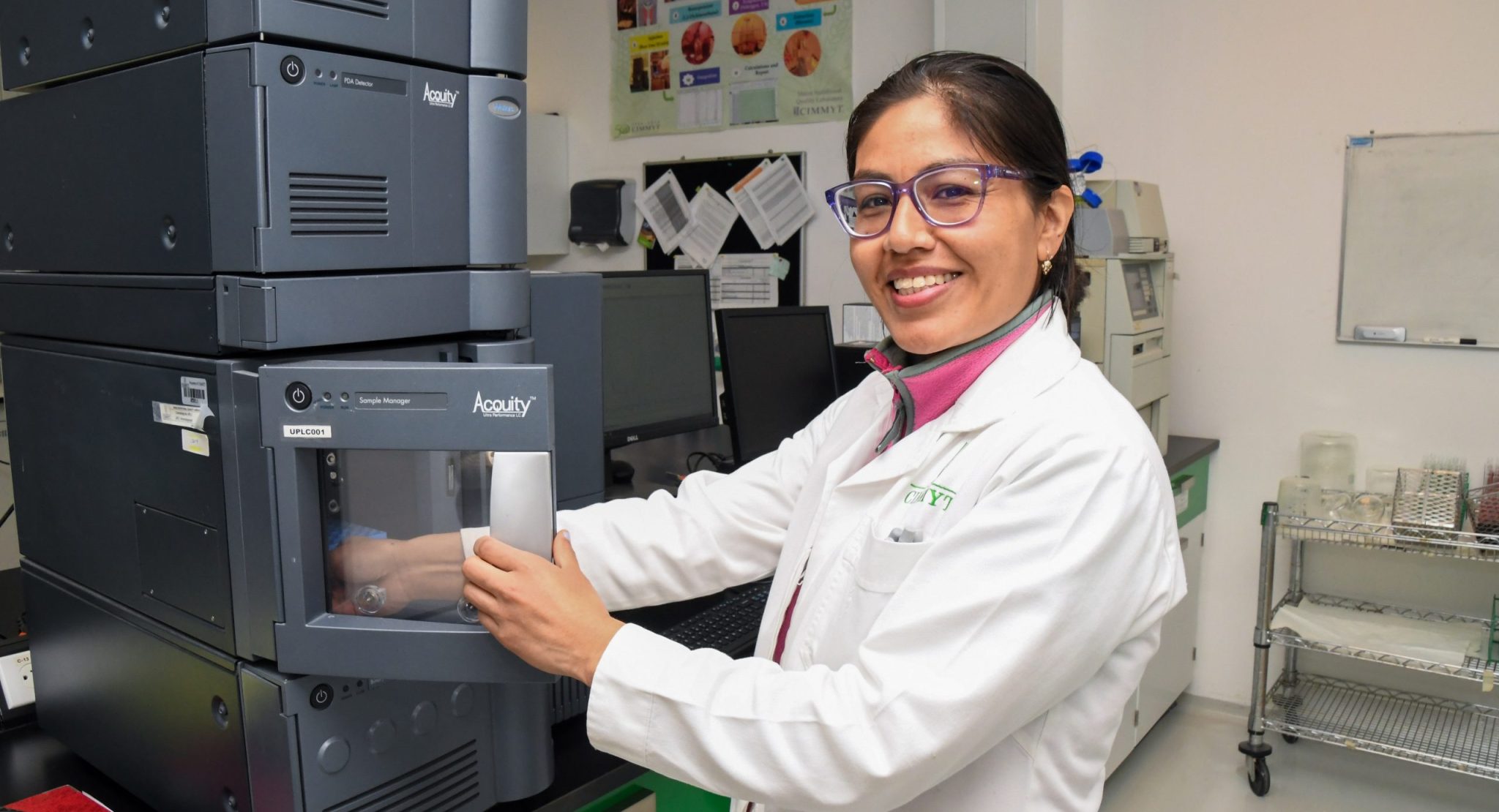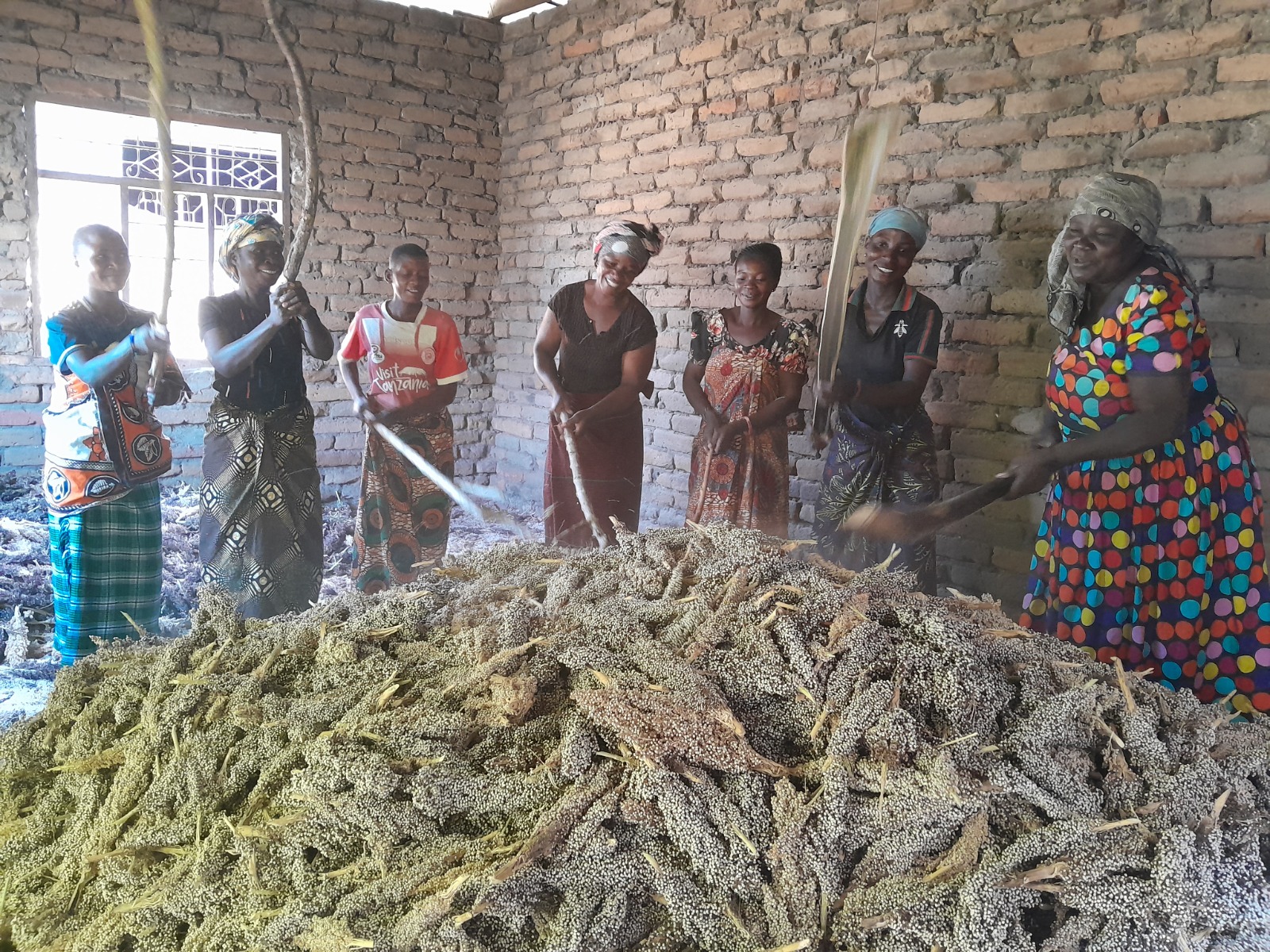Gender equality, youth and social inclusion
Gender and other social differences such as age, wealth and ethnicity, have an enormous influence upon the success of agricultural interventions. To ensure equitable impacts and benefits to rural people, CIMMYT emphasizes inclusive research and development interventions. Starting with the collection of data on gender and social differences, efforts are underway to address these gaps and ensure equitable adoption of technologies and practice. This includes working towards gender-equitable control of productive assets and resources; technologies that reduce women’s labor; and improved capacity of women and youth to participate in decision-making.
When the worm won’t wait: Battling Fall Armyworm with science, seeds and farmer-led solutions
 Climate adaptation and mitigation
Climate adaptation and mitigation
When the worm won’t wait, farmers fight back—with science in the seed and solutions rooted in the soil.
Fidelia González Galindo, a rural woman who challenges limits and transforms the countryside
 Gender equality, youth and social inclusion
Gender equality, youth and social inclusion
Fidelia González Galindo breaks barriers in agriculture by empowering rural women and transforming food security in Puebla
Double the Harvest, Double the Income: Intercropping for Yield, Income and Security
 Climate adaptation and mitigation
Climate adaptation and mitigation
In eastern India, smallholder farmers are transforming agriculture through CIMMYT-led intercropping innovations that boost income, improve nutrition, and build resilience against climate risks
Seeds of Change: Transforming agriculture in Koraput, Odisha
 Gender equality, youth and social inclusion
Gender equality, youth and social inclusion
In Koraput, women farmers are strengthening traditions and livelihoods through collective action and better agricultural access
With Innovations, They Protect Maize Biodiversity
 Capacity development
Capacity development
Empowering rural women in Quintana Roo through training and inclusive innovation, this initiative strengthens native maize conservation, enhances food security, and promotes gender equity in agriculture
Rising from adversity: The inspiring success of Asma and Tasin’s engineering workshop
 Gender equality, youth and social inclusion
Gender equality, youth and social inclusion
A resilient mother-daughter duo transforms a family-run light engineering business through innovation, training, and inclusive entrepreneurship, setting a powerful example of women-led agribusiness in action
Positive Solutions for Nature in Colombia: A Review
 Environmental health and biodiversity
Environmental health and biodiversity
CIMMYT is helping farmers in Colombia conserve native maize, strengthen seed systems, and connect with niche markets through the CGIAR led Nature+ initiative, promoting biodiversity, inclusion, and sustainable livelihoods
Sonia Jannat: defying odds, reaping success as a combine harvester MSP
 Gender equality, youth and social inclusion
Gender equality, youth and social inclusion
Sonia Jannat is transforming farming in Bangladesh with innovation, grit, and a drive to empower others
How more inclusive maize breeding can yield better outcomes for women farmers in Zimbabwe
 Capacity development
Capacity development
CIMMYT strengthens maize breeding in Zimbabwe through inclusive on-farm trials, farmer training, and seed innovations to benefit all farmers
International Women’s Day: inclusion drives innovation
 Gender equality, youth and social inclusion
Gender equality, youth and social inclusion
CIMMYT integrates inclusive perspectives in agricultural research to ensure innovations reach diverse farmers, enhancing resilience and livelihoods
Maureen Miruka Kemunto
 Gender equality, youth and social inclusion
Gender equality, youth and social inclusion
The Guardians of Diversity: The Work of Carolina Sansaloni
 Gender equality, youth and social inclusion
Gender equality, youth and social inclusion
Carolina Sansaloni, Curator of the Wheat Collection at CIMMYT, champions women’s role in science and safeguards wheat and maize diversity for global food security
Advancing gender and social inclusion in agroecology: Insights from the CGIAR Agroecology Initiative in Zimbabwe
 Gender equality, youth and social inclusion
Gender equality, youth and social inclusion
The CGIAR Agroecology Initiative empowers women and youth in Zimbabwe by embedding gender and social inclusion into sustainable farming
Scientific careers that are transforming the future of food for humanity
 Gender equality, youth and social inclusion
Gender equality, youth and social inclusion
Women’s participation in science remains low, yet their inclusion is critical to developing innovative solutions in critical areas such as food security. The story of María Luisa Cabrera Soto shows how perseverance can open doors and change the future of agriculture and nutrition
How Ivuna women farmers are transforming their lives through seed production
 Capacity development
Capacity development
In Ivuna Village, Tanzania, a determined group of women leveraged Vikoba loans, mentorship, and improved sorghum seeds to transform their livelihoods, boost household incomes, and inspire others in their community
